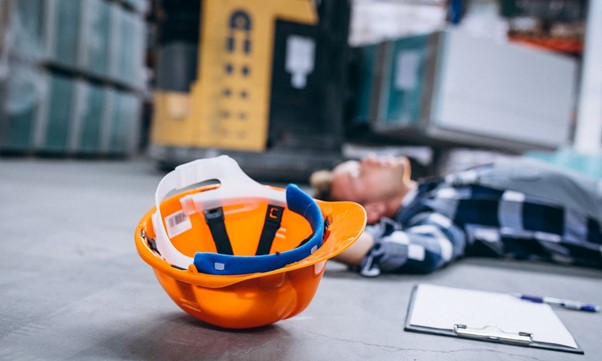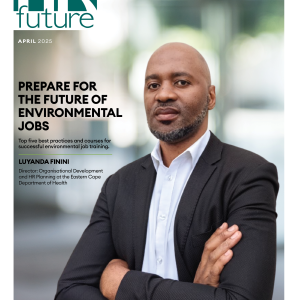Two thirds of Millennials express a desire to leave their organisations by 2020. Millennials’ loyalty to their organisations is connected to leadership development opportunities, workplace flexibility, and a sense of purpose beyond profit.
Personal values guide Millennials’ career choices; 56 percent won’t consider certain employers based on an organisation’s values or conduct, while 49 percent have rejected assignments that conflict with their values or ethics.
In the next year, given the choice, one in four global Millennials would quit his or her current job and do something different, according to Deloitte’s fifth annual Millennial Survey. The figure increases when the time frame is expanded to five years with 76% of South African Millennials surveyed expecting to quit their current employer by 2020. In general, the intention to move on is greater in emerging markets (69%) rather that mature economies (61%).
It is thus imperitive for businesses to adjust how they nurture loyalty among Millennials or risk losing a large percentage of their workforces, as the grouping currently forms the biggest of the South African population.
The potential exodus is not only linked to junior appointments but even those Millennials in senior positions expressed the intention to leave their organisations relatively soon. In the current survey, approximately one in five respondents are either the head of a department or division or have a position within his or her senior management team or board.
Clearly, Millennials no longer have the potential to shape the fortunes of their organistions; many are already in positions to do so. However, while they occupy such influential positions and have presumably enjoyed satisfactory career trajectories, a majority still believe they will leave their current businesses in the next five years.
While this naturally represents gains for new employers this is a significant amount of senior talent (and investment) to be walking out the door.
Concerns regarding a lack of development of leadership skills and feelings of being overlooked were often voiced by those surveyed considering near-term career changes. However, larger issues around work/life balance, the desire for flexibility, and differences around business values emerged as a larger influencer of opinion and behaviour.
Millennials appear to be guided by strong values at all stages of their careers; it’s apparent in the employers they choose, the assignments they’re willing to accept, and the decisions they make as they take on more senior level roles. While they continue to express a positive view of business’ role in society and have softened their negative perceptions of business’ motivation and ethics compared to prior surveys, Millennials still want businesses to focus more on people (employees, customers, and society), products, and purpose and less on profits.
They need to demonstrate they appreciate these priorities, or their organisations will continue to be at risk. Fortunately, Millennials have provided business with a roadmap of how employers can meet their needs for career satisfaction and professional development.
Earning Millennials’ loyalty
Millennials seek employers with similar values; seven in 10 believe their personal values are shared by the organisations for which they work. This is the potential “silver lining” for organisations aiming to retain these young professionals.
Closing the “purpose gap” also will be critical to attracting and keeping Millennials. They want to work for organisations that focus on improving the skills, income, and ‘satisfaction levels’ of employees; create jobs; and provide goods and services that have a positive impact on peoples’ lives. Millennials recognise the need for businesses to be profitable and to grow, but feel organisations are often too focused on those objectives. To Millennials, organisations with a strong sense of purpose will achieve long-term success while organisations that do not are at risk.
Employers that provide opportunities for leadership development; connect Millennials to mentors; encourage a work/life balance; provide flexibility that allows Millennials to work where they’re most productive; give them more control over their careers; and foster cultures that encourage and reward open communications, ethical behavior, and inclusiveness, are those that will be most successful in retaining Millennial employees.
Values are traditional, less compromising
Contrary to perception, the survey found that Millennials aren’t particularly influenced by the “buzz” around particular businesses or employers. Survey respondents also indicate little desire to be famous, have a high profile on social media, or accumulate great wealth. Instead, in broad terms, Millennials’ personal goals are rather traditional. They want to own their own homes, they desire a partner for life, and they seek financial security that allows them to save enough money for a comfortable retirement. The ambition to make positive contributions to their organisations’ success and/or to the world in general also rate highly.
When asked to state the level of influence different factors have on their decision-making at work, “my personal values /morals” ranked first. Most Millennials have no problem standing their ground when asked to do something that conflicts with their personal values. This includes more senior Millennials, whose emphasis on personal values continues into the boardroom suggesting future leaders will base their decisions as much on personal values as on the achievement of specific organisational targets or goals.
A generation ago, many professionals sought long-term relationships with employers, and most would never dream of saying ‘no’ to supervisors who asked them to take on projects. But, Millennials are more independent and more likely to put their personal values ahead of organisational goals. They are re-defining professional success, they’re proactively managing their careers, and it appears that their values do not change as they progress professionally, which could have a dramatic impact on how business is done in the future.
Additional findings include:
• High correlation between satisfaction and purpose. 40 percent of Millennials reporting high job satisfaction, and 40 percent who plan to remain in their jobs with their current employer beyond 2020, say their employers have a strong sense of purpose beyond financial success. The figures among those reporting low satisfaction, and those who plan to leave within two years, was just 22 percent and 26 percent, respectively.
• More than economic factors driving Millennials to leave. The desire to leave their current job during the next five years is greater among Millennials in emerging markets (69 percent) than in developed economies (61 percent). However, outliers including the UK, where the rate is 71 percent suggest the desire to move on is not merely a function of the economic climate.
• Business as a force for good. Millennials continue to hold business in high regard; three quarters (73 percent) maintain that it has a positive impact on wider society. This figure is unchanged since 2014 and shows that, despite a downturn in certain local and regional economies, Millennials remain upbeat about business’s potential to do good.
• Unhappy with leadership development. Almost two thirds (63 percent) of Millennials feel their leadership skills are not being fully developed, and 71 percent of those expecting to leave their employer in the next two years are unhappy with how their leadership skills are being developed a full 17 points higher than among those intending to stay beyond 2020.
• Focused on productivity, personal growth. Millennials want to spend more time discussing new ways of working, developing their skills, and being mentored.
• Seeking flexibility. Three quarters of Millennials would prefer to work from home or other locations where they feel they could be most productive. However, only 43 percent currently are allowed to do this.
• Feeling in control. Three quarters (77 percent) of Millennials feel in control of their career paths.
Punit Renjen is the CEO at Deloitte Global and Werner Nieuwoudt is the Human capital leader for Deloitte in South Africa.

























